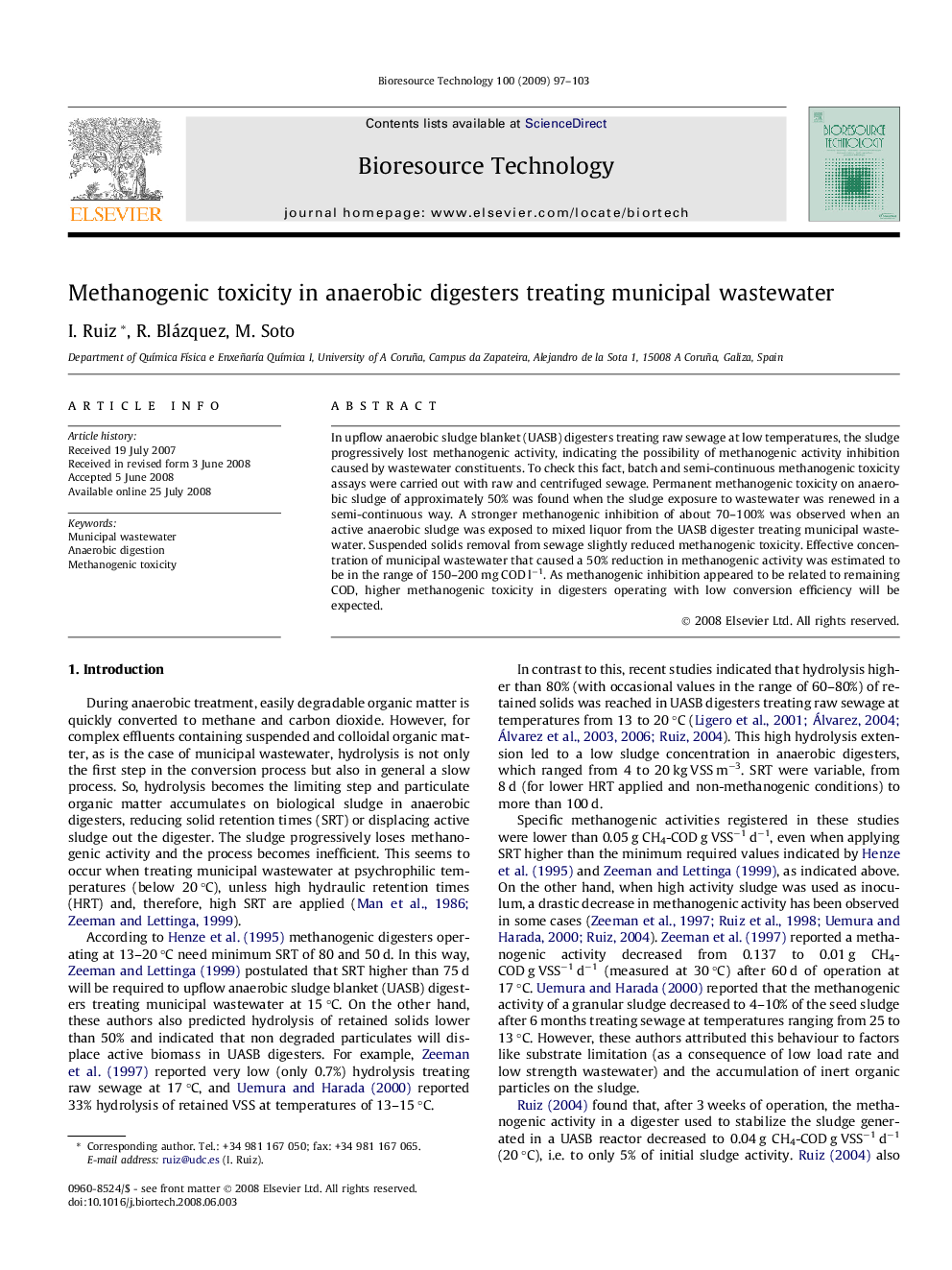| Article ID | Journal | Published Year | Pages | File Type |
|---|---|---|---|---|
| 684231 | Bioresource Technology | 2009 | 7 Pages |
In upflow anaerobic sludge blanket (UASB) digesters treating raw sewage at low temperatures, the sludge progressively lost methanogenic activity, indicating the possibility of methanogenic activity inhibition caused by wastewater constituents. To check this fact, batch and semi-continuous methanogenic toxicity assays were carried out with raw and centrifuged sewage. Permanent methanogenic toxicity on anaerobic sludge of approximately 50% was found when the sludge exposure to wastewater was renewed in a semi-continuous way. A stronger methanogenic inhibition of about 70–100% was observed when an active anaerobic sludge was exposed to mixed liquor from the UASB digester treating municipal wastewater. Suspended solids removal from sewage slightly reduced methanogenic toxicity. Effective concentration of municipal wastewater that caused a 50% reduction in methanogenic activity was estimated to be in the range of 150–200 mg COD l−1. As methanogenic inhibition appeared to be related to remaining COD, higher methanogenic toxicity in digesters operating with low conversion efficiency will be expected.
